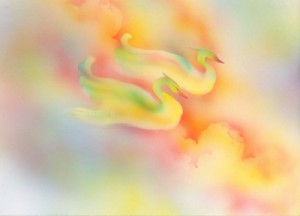Our senses are ordinarily tuned to receive the gross vibrations from objects. It receives them as sensations. The purpose of the senses is to receive world contacts. If the senses are crude it receives them as pleasure and pain. As they get refined it receives them as the essential delight of existence.
The degree of refinement of our senses depends upon the quality of our consciousness. At the same time if the senses indulge in crude pleasures our consciousness becomes more and more heavy and gross. Refining the senses, therefore, has to be worked at both ends.
 At the level of the senses we have to expose and train, sensitise and discipline them to prefer the subtle over the gross, the refined over the crude, the beautiful over the ugly. Thus the eyes should be trained to see beauty even in a pebble, a flower, colours and all other forms. The ears tuned to hear softer notes, flowing rhythms than loud titillating music. Same way with other senses. Arts such as poetry, painting and music help refine our senses.
At the level of the senses we have to expose and train, sensitise and discipline them to prefer the subtle over the gross, the refined over the crude, the beautiful over the ugly. Thus the eyes should be trained to see beauty even in a pebble, a flower, colours and all other forms. The ears tuned to hear softer notes, flowing rhythms than loud titillating music. Same way with other senses. Arts such as poetry, painting and music help refine our senses.
At the same time, the mind and vital should withdraw from pleasure in crude objects and grosser appetites. They should get engaged in and concentrate upon the Divine Presence or the Divine aspects of beauty, peace, light, sweetness, harmony. Through an aspiration for the Divine and contact with Him, our consciousness starts getting refined automatically. Calling peace and habituating the senses to peace is a wonderful way to help provide the right matrix for the senses to grow.
A mention must be made of the role of speech and body gestures. Speech and communications through body gestures have an impact upon our consciousness and hence on the senses. This truth was used well in ancient India and hence the word for refinement and culture was deeply connected to the language of communication, that is Sanskrit.



